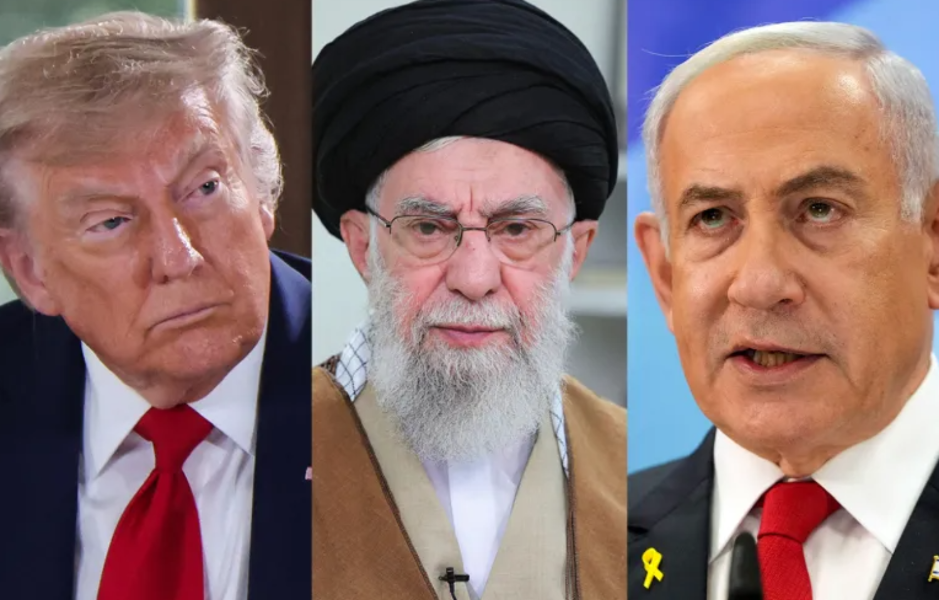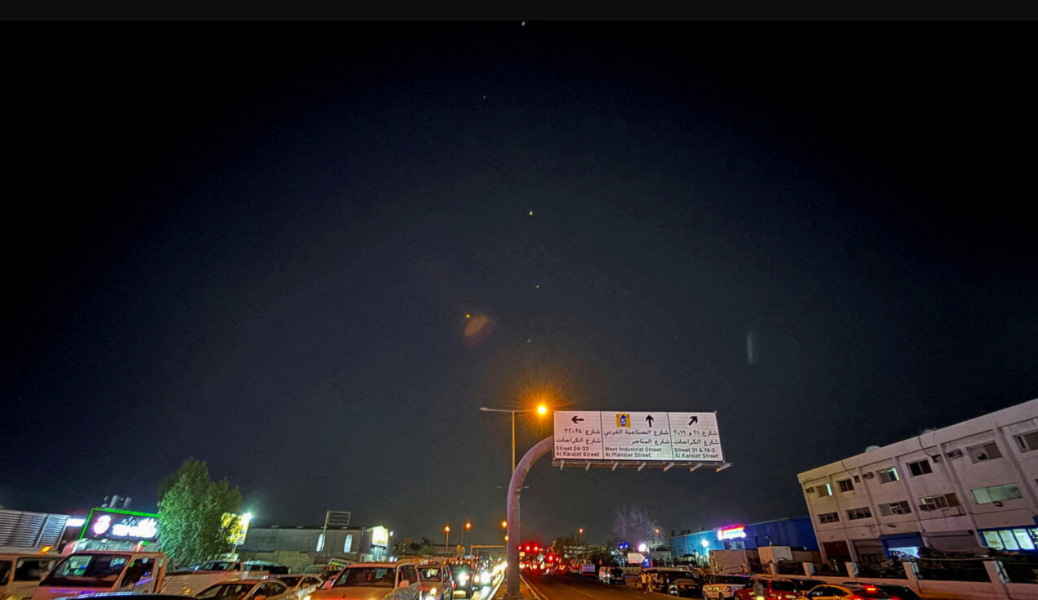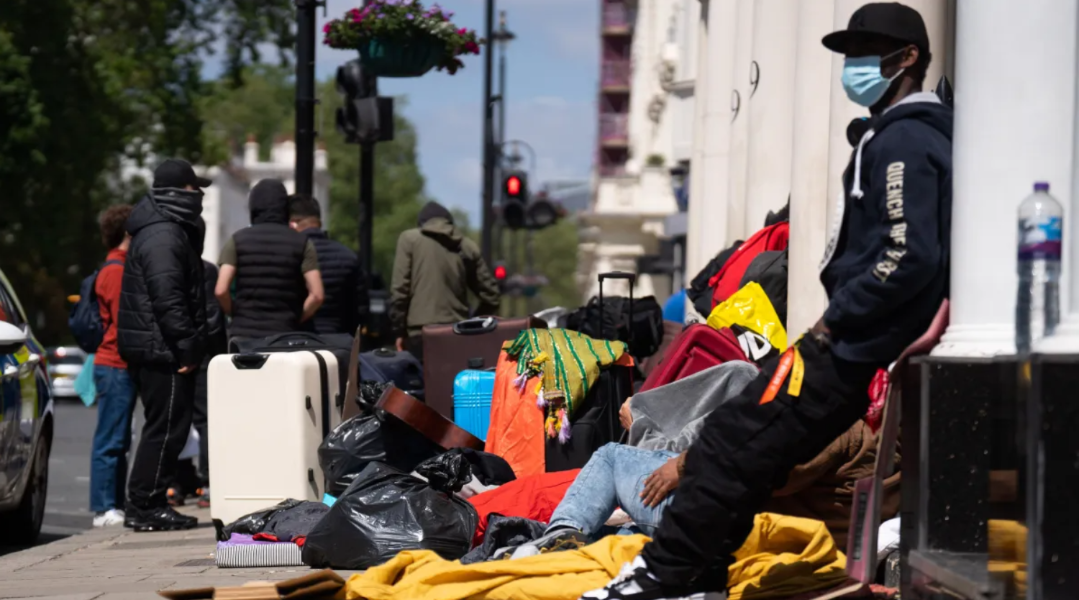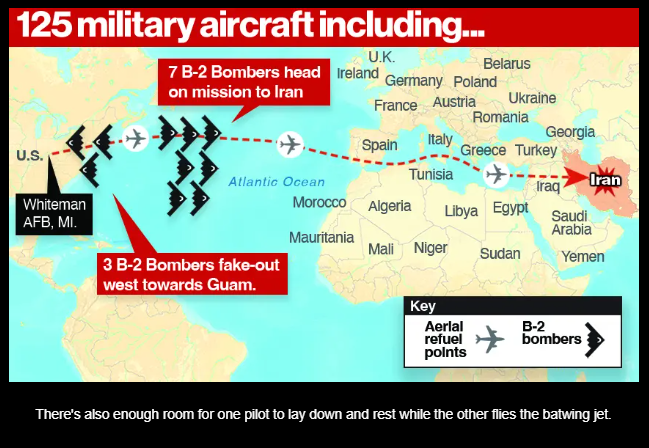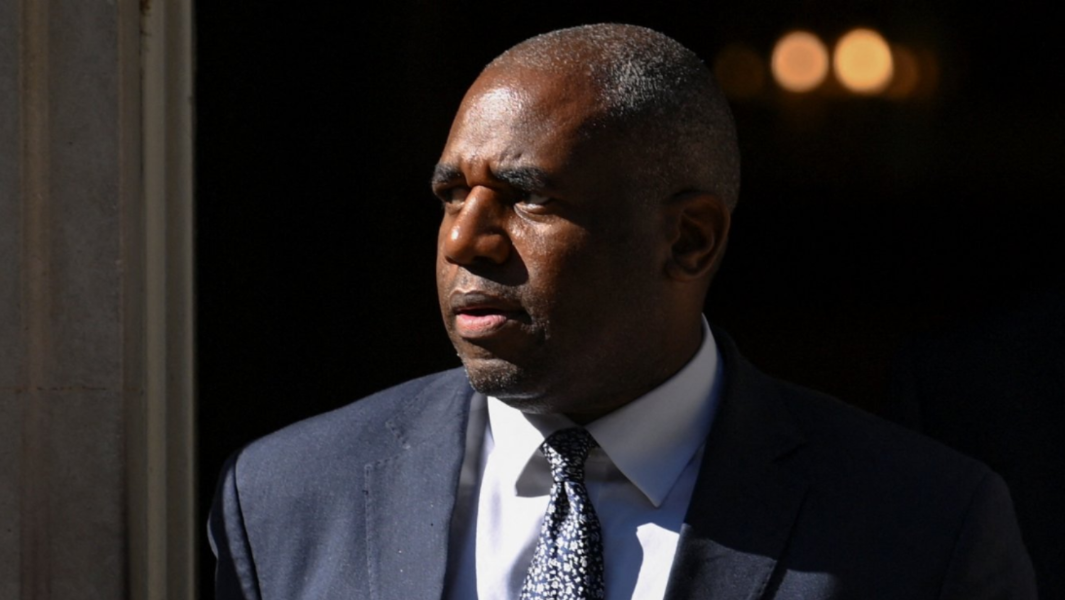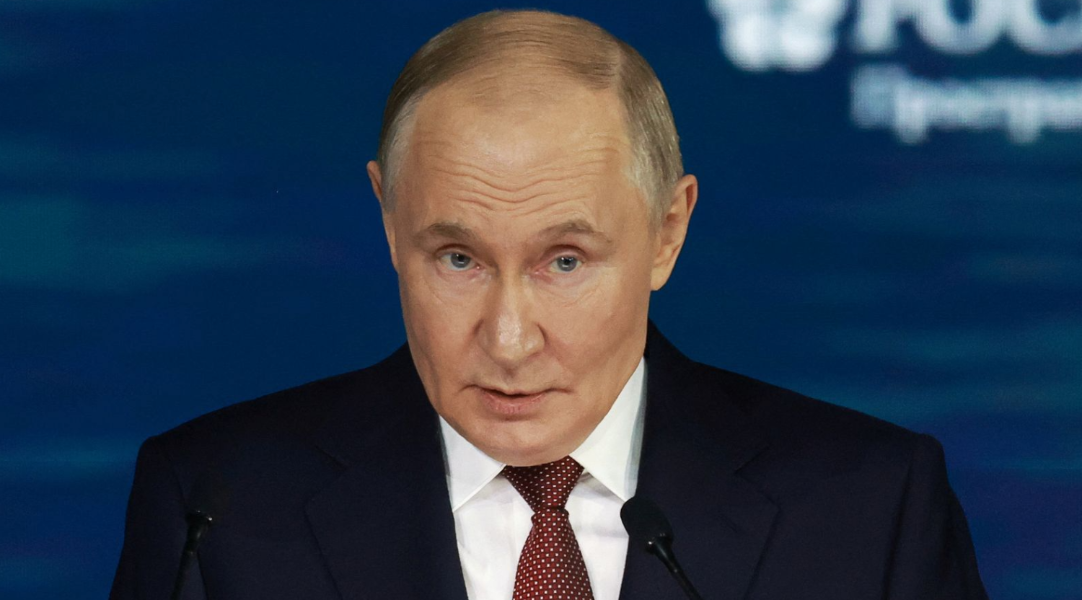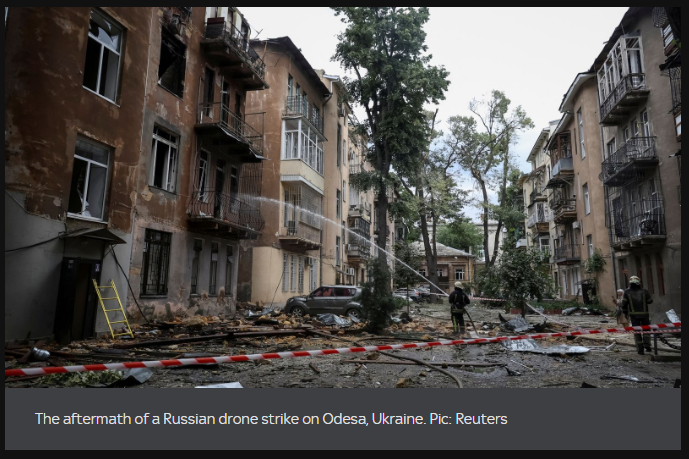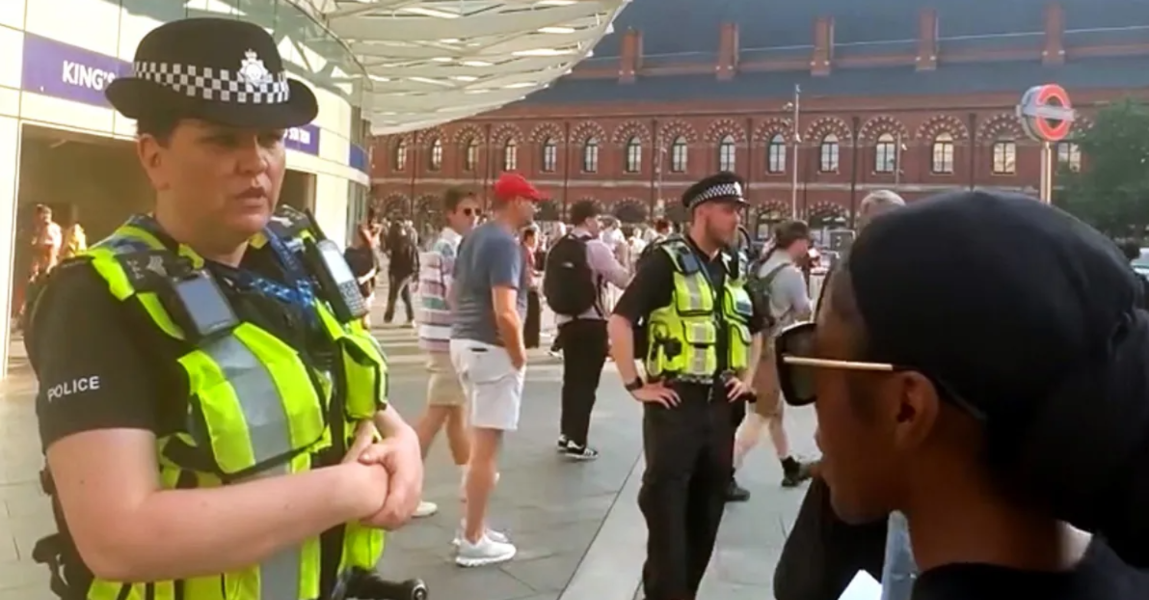-
Posts
10,723 -
Joined
-
Last visited
Content Type
Events
Forums
Downloads
Quizzes
Gallery
Blogs
Everything posted by Social Media
-
Trump Declares 'Complete and Total' Ceasefire Between Israel and Iran After '12 Day War' President Donald Trump has announced that Israel and Iran have agreed to a “complete and total” ceasefire, bringing an abrupt halt to nearly two weeks of hostilities that threatened to engulf the region in prolonged conflict. Posting on his Truth Social platform in the early hours, Trump revealed that the ceasefire would begin “in approximately six hours from now,” following a mutual wind-down of military operations by both nations. According to Trump, the official end to the war will come “upon the 24th hour,” suggesting a phased cessation of hostilities designed to ensure both sides withdraw in a coordinated and verifiable manner. His message indicated optimism that the truce would hold, stating, “On the assumption that everything works as it should, which it will, I would like to congratulate both countries.” In a follow-up post, Trump formally dubbed the recent conflict “The 12 Day War,” underscoring the relatively brief but intense nature of the confrontation. “This is a war that could have gone on for years, and destroyed the entire Middle East, but it didn't, and never will!” the president declared. The ceasefire comes just hours after Iran launched missiles at a U.S. military base in Qatar, an act of retaliation for American airstrikes that devastated Iran’s nuclear infrastructure. Trump earlier described the Iranian missile response as “very weak” and noted that U.S. defenses had successfully intercepted 13 out of 14 projectiles, with the remaining missile causing no damage. Despite the rising tensions and military exchanges, Trump had signaled his desire for de-escalation in the hours preceding the ceasefire announcement. He thanked Iran for giving “early notice” of their attack and praised Qatar’s Emir for playing a constructive role in pursuing regional peace. “Most importantly, they’ve gotten it all out of their ‘system,’ and there will, hopefully, be no further HATE,” Trump said in a previous post. “Perhaps Iran can now proceed to Peace and Harmony in the Region, and I will enthusiastically encourage Israel to do the same.” Now, with both Iran and Israel reportedly committed to halting military activity, Trump has positioned the truce as a diplomatic triumph and a turning point for the region. Ending his string of announcements with a bold proclamation, he wrote: “CONGRATULATIONS WORLD, IT’S TIME FOR PEACE!” While many details of the ceasefire agreement remain unclear—including whether any formal negotiations preceded it or what role U.S. diplomacy played in securing the deal—the announcement has already marked a dramatic pivot from war to peace. All eyes will now be on the next 24 hours, as the world waits to see whether the ceasefire will hold—and whether Trump’s bold declaration of peace becomes lasting reality. Adapted by ASEAN Now from BBC 2025-06-24
-
Trump Dismisses Iranian Missile Attack on U.S. Base in Qatar as 'Very Weak' and Calls for Regional Peace In the early hours following a missile barrage launched by Iran at a U.S. military base in Qatar, President Donald Trump downplayed the attack, describing it as a “very weak response” and claiming that the United States had successfully intercepted nearly all incoming missiles. Speaking on his social media platform, Truth Social, Trump said: “Iran has officially responded to our Obliteration of their Nuclear Facilities with a very weak response, which we expected, and have very effectively countered.” According to Trump, Iran launched 14 missiles at U.S. positions in Qatar. Of those, 13 were reportedly intercepted, while one veered off harmlessly in a “nonthreatening direction.” Trump assured the public that no Americans were harmed and that the damage was minimal. He also noted that no Qatari citizens were killed or injured in the assault. “This is the retaliation that was expected,” said House Speaker Mike Johnson, who confirmed he had received a classified intelligence briefing on the situation earlier in the day. His comments suggest that U.S. officials were prepared for such a strike following the American air assault that destroyed Iranian nuclear infrastructure days prior. While tensions have escalated between Washington and Tehran, Trump struck a surprisingly conciliatory tone in his follow-up messages, suggesting that the confrontation might be coming to an end. “Most importantly, they’ve gotten it all out of their ‘system,’ and there will, hopefully, be no further HATE,” he posted. “I want to thank Iran for giving us early notice.” Trump's remarks appear to suggest a willingness to move past the current crisis, advocating for a renewed diplomatic push in the region. “Perhaps Iran can now proceed to Peace and Harmony in the Region, and I will enthusiastically encourage Israel to do the same,” he wrote. Moments later, Trump issued two additional messages, doubling down on his message of peace and offering praise for Qatar's diplomatic efforts. “I want to thank the Emir of Qatar for all that he has done in seeking Peace for the Region,” he said. In a final, emphatic message, the U.S. president proclaimed: “CONGRATULATIONS WORLD, IT’S TIME FOR PEACE!” While the missile attack marked a serious escalation following the U.S. airstrikes on Iran’s nuclear program, Trump’s confident tone and emphasis on diplomacy suggested that Washington might not seek further immediate military retaliation. The next steps from Tehran remain to be seen, but for now, American leadership appears eager to declare victory and pivot toward de-escalation. UPDATE: Latest tweet from Trump: Adapted by ASEAN Now from BBC 2025-06-24
-
Zohran Mamdani Under Fire for Praising Convicted Hamas Funders in Rap Lyrics New York City mayoral candidate Zohran Mamdani is facing intense criticism after it was revealed that he once praised convicted Hamas financiers in a 2017 rap song. The Democratic Socialist and Queens Assemblyman, formerly known as rapper “Mr. Cardamom,” declared his “love” for the Holy Land Five—leaders of a now-defunct charity convicted in 2008 of channeling millions of dollars to Hamas, a U.S.-designated terrorist group. The controversial lyrics were uncovered by the anti-antisemitism watchdog Canary Mission and released in a video on Friday. In the track titled “Salaam,” Mamdani raps, “My love to the Holy Land Five. You better look ’em up.” He has previously described the song as an ode to growing up Muslim in New York City. The Holy Land Five—Shukri Abu Baker, Mohammad El-Mezain, Ghassan Elashi, Mufid Abdulqader, and Abdulrahman Odeh—were the top officials of the Texas-based Holy Land Foundation for Relief and Development. In 2008, following a lengthy investigation and a mistrial the year prior, a federal jury convicted the five men on 108 charges, including providing material support to Hamas, tax fraud, and money laundering. Sentences ranged from 15 to 65 years in federal prison. While three have since been released, the organization was shut down in 2001 by the federal government and designated a terror group after it was discovered that $12 million had been funneled to Hamas under the guise of charitable donations. Canary Mission condemned Mamdani’s words, stating, “Mamdani sent his ‘love’ to convicted Hamas funders. Let that sink in.” The group’s statement also denounced the assemblyman’s broader political views, adding, “Zohran Mamdani stands with convicted terrorist funders and wants open borders. This is New York City — not a sanctuary for terrorists. Zohran Mamdani. Unfit. Un-American. Unthinkable.” Former Governor Andrew Cuomo, who is leading the polls ahead of Tuesday’s Democratic mayoral primary, strongly denounced Mamdani’s comments during a campaign stop in the Bronx. “This is not a pro-Palestinian aid, this is not humanitarian,” Cuomo said. “This is him saying he loves – that is his own words — he loves the Holy Land Five, who are convicted, funders of Hamas. It’s disgusting and despicable.” The Holy Land Foundation operated from 1992 until its closure in the aftermath of 9/11. It had raised around $57 million but reported only $36 million to the IRS. In 2000 alone, it brought in $13 million, making it the largest Muslim charity in the United States before federal authorities shut it down. Mamdani’s lyrics didn’t stop at support for the Holy Land Five. In another part of the track, he raps, “No ban. No wall. Build it up. We’ll make it fall,” a line that Canary Mission interpreted as a call for open borders and potential national insecurity. “No ban, no wall—that’s an open door for criminals and chaos,” the group warned. Republican mayoral candidate Curtis Sliwa also weighed in, saying, “It’s alarming that a mayoral candidate has a history of praising Hamas. New Yorkers reject hate and extremism, and they should reject any candidate who refuses to do the same.” As Mamdani continues to poll in second place behind Cuomo, the controversy surrounding his past lyrics threatens to reshape the dynamics of the Democratic primary, with critics now openly questioning whether his rhetoric and political alliances are compatible with leading America’s largest city. Adapted by ASEAN Now from NYP 2025-06-24
-
BBC Presenter’s ‘Pregnant People’ Correction Draws Applause from JK Rowling A subtle but pointed moment during a BBC News broadcast has ignited praise and debate after presenter Martine Croxall appeared to push back on gender-neutral terminology. While reading a segment about heatwave safety guidance for vulnerable groups, Croxall initially used the term “pregnant people”—a phrase increasingly adopted by institutions and activists to accommodate gender self-identification. But in the very next breath, she made a deliberate correction: “women,” adding slight emphasis and a visible roll of the eyes. BBC presenter reads “pregnant people” from the teleprompter and then corrects it to “women”. The moment, broadcast live during a Saturday lunchtime bulletin, quickly made its way online. Among those to share and celebrate the clip was author and gender-critical campaigner JK Rowling. Posting it to her X account (formerly Twitter), the Harry Potter writer declared: “I have a new favourite BBC presenter.” According to reports, the term “pregnant people” had originated directly from the scientific study Croxall was summarising, rather than being editorial wording from the BBC itself. The broadcaster, for its part, has not released an official comment on the incident. However, it is understood that its internal guidance does not enforce the use of gender-neutral language such as “pregnant people,” although journalists are instructed to use individuals' preferred gender pronouns. This approach is outlined in the BBC’s internal style guide, which states: “A person born male who lives as a female would typically be described as a ‘transgender woman’ and would take the pronoun ‘she’. And vice versa. We generally use the term and pronoun preferred by the person in question.” The guidance aligns with a wider trend in media organisations toward respecting self-identification, though it has become increasingly contentious amid legal and cultural debates over biological sex and gender identity. The NHS, in particular, has faced mounting scrutiny for adopting phrases like “pregnant people” and “birthing person,” prompting criticism from those who argue that such language erases the biological reality of women. Activists defending this language say it ensures inclusivity for transgender and non-binary individuals who may also experience pregnancy. Yet the backdrop to this debate has shifted in recent months, particularly following an April ruling by the UK Supreme Court. In that decision, the court held that the legal definition of “woman” should refer to biological sex, not self-identified gender—a ruling that has cast uncertainty over institutional language guidelines, including those of the BBC. The broadcaster has reportedly begun reviewing its editorial policies in light of the ruling, though no changes have yet been implemented. JK Rowling, whose public stance on gender and sex has made her a lightning rod in the broader culture war, recently accused the BBC of failing to report on issues she sees as central to the rights and safety of women. Just last week, she criticised the broadcaster for not covering a women-only housing project that will admit biological men who identify as women. “The BBC can no longer be trusted to report on transgender issues,” Rowling said at the time. Though Croxall’s brief moment on air may have seemed minor, its resonance across social media and among gender-critical voices reflects the growing sensitivity around language, identity, and the role of public institutions in mediating those issues. For now, the BBC has stayed silent, but the conversation it inadvertently sparked is unlikely to quiet down soon. Adapted by ASEAN Now from The Telegraph 2025-06-24
-
Asylum Appeals Surge Leaves Thousands of Migrants in Hotels for Years Tens of thousands of failed asylum seekers remain housed in hotels across the UK due to a spiralling backlog in appeals, with new figures revealing that over 50,000 migrants are still awaiting hearings despite having initial claims rejected. The soaring number of appeals and unprecedented delays in the system mean many individuals are spending years in publicly funded accommodation. As of March, there were 50,976 outstanding asylum appeals—almost twice the number from the previous year and seven times higher than in 2023. This figure represents the highest backlog of asylum appeals ever recorded. On average, it now takes 54 weeks for these cases to be heard in court, the first time such proceedings have taken longer than a year. Colin Yeo, an immigration barrister, told The Times that even this figure may underestimate the true wait time. "The 54 weeks refers to cases that entered the system back in 2024, when the backlog was significantly smaller," he said, implying that current claimants could wait far longer. This delay is in addition to the wait asylum seekers face before even receiving an initial decision. Around one-third of all asylum cases—about 25,000 over the past year—have been pending for more than 12 months. As a result, many individuals end up waiting over two years for a final resolution. The longer they remain in the country, the greater their chances of avoiding removal due to rights acquired during their stay, such as protections under Article 8 of the European Convention on Human Rights, which shields relationships formed while residing in a host nation. These figures present a serious challenge to the government, particularly after Chancellor Rachel Reeves pledged earlier this month to move all asylum seekers out of hotels by 2029. Yet the daily arrival of migrants continues. More than 1,000 people crossed into the UK over Friday and Saturday alone, pushing the total this year to 18,400—a record high and 45 percent more than during the same period in 2024. Part of the surge in appeals stems from a dramatic drop in the success rate of initial claims. Only 43 percent of asylum applications were granted in the first quarter of 2025, compared to 75 percent in 2023. In response, the government is attempting to impose a mandatory 24-week deadline for appeals to be heard through the new Border Security, Asylum and Immigration Bill. However, this reform is unlikely to be implemented before year’s end. Labour has yet to clarify how this legal deadline will be enforced, particularly given existing systemic strains. A severe shortage of qualified lawyers and limited court time has left many claimants without representation. In fact, only about half of asylum seekers are able to secure legal counsel. As a result, many cases are adjourned or involve self-representation, which can extend hearings sixfold. To address the legal bottleneck, the Ministry of Justice plans to raise legal aid fees by 10 percent, bringing rates up to £69 per hour to attract more immigration lawyers. But this measure, too, won’t take effect until later this year. The appeals backlog compounds an already critical problem: the 78,745 asylum claims still awaiting initial decisions. Thousands of failed applicants remain in the UK, often due to logistical and legal barriers to removal. Those deemed destitute by the Home Office receive free housing and a £50 weekly allowance. By the end of March, 106,771 asylum seekers were receiving this support, including 32,345 placed in hotels and 66,683 in dispersal accommodation such as shared houses and flats. While dispersal housing costs £14 per night, hotel stays average £144—nearly ten times more. Although there has been a push to speed up initial asylum decisions—with 11,000 processed each month, up from a low of just 2,110 in July 2024—concerns are mounting over the quality of decisions. There are early signs that more appeals are being upheld, which could further strain an already overwhelmed system. The Home Office, which represents the government in 95 percent of appeals, is now facing an unsustainable workload. Adapted by ASEAN Now from The Times 2025-06-24
-
Suspected Iranian Spy Arrested in Cyprus Over Alleged Plot Targeting British Military Base A man suspected of working with Iran’s Islamic Revolutionary Guard Corps (IRGC) has been arrested in Cyprus on suspicion of planning a terrorist attack on a British military base. The unnamed individual, of Azerbaijani descent, was detained by Cypriot authorities following intelligence shared by a foreign agency suggesting an imminent threat to the RAF Akrotiri base, a vital UK military hub in the Eastern Mediterranean. According to multiple media reports, the suspect had been conducting surveillance on RAF Akrotiri since mid-April, as well as on the nearby Andreas Papandreou air base used by Cypriot forces. He was apprehended in the Zakaki area of Limassol, only six miles from the British base, after reportedly being observed loitering near the facility almost daily. Phileleftheros, Cyprus’s largest newspaper, reported that the man had been frequently seen carrying a camera with a magnifying lens and three mobile phones. He is alleged to have taken long-distance photographs and video recordings of military installations, made written notes, and used various electronic devices while monitoring the site. The Cypriot police confirmed on Saturday that the man had been arrested on suspicion of espionage and terrorism-related activities. A district court granted an eight-day detention order at a closed hearing while investigations continue. “No further details are being issued,” police stated, citing national security concerns. The Akrotiri base is the UK’s largest overseas military installation and plays a pivotal role in British operations across the Middle East. It houses Eurofighter Typhoons, which have been used in airstrikes against Islamic State targets and Houthi militants in Yemen, alongside Voyager refuelling aircraft and Shadow intelligence-gathering planes. Terror-related incidents are extremely rare in Cyprus, a strategically located island of 1.3 million people sitting at the crossroads of Europe, the Middle East, and North Africa. However, tensions in the region have increased significantly following the recent escalation of hostilities between Iran and Israel on June 13, with Cyprus emerging as a key transit point in and out of the Middle East. The IRGC, Iran’s elite military force, reports directly to the country’s Supreme Leader and oversees its nuclear and ballistic missile programmes. It has long been accused of orchestrating terror plots abroad and operates one of the largest paramilitary organisations in the region, believed to have more than 250,000 personnel. This latest arrest comes amid heightened scrutiny of Iranian-linked threats in Europe. “Police and MI5 have responded to 20 Iran-linked plots since 2022, including assassination and abduction attempts,” Security Minister Dan Jarvis told Parliament last month. One such plot reportedly targeted the Israeli embassy in London in May, with five men—including four Iranian nationals—arrested across England in what Home Secretary James Cleverly called “one of the biggest counter-terror operations in recent years.” In that case, authorities believe the suspects were just hours away from launching an attack on the embassy in west London when they were detained. Following the Cyprus arrest, pressure has mounted on Prime Minister Sir Keir Starmer to formally proscribe the IRGC as a terrorist organisation. Labour had previously called for proscription while in opposition but has yet to act nearly a year into government. Calls intensified after the government moved swiftly to proscribe the group Palestinian Action on Friday, following acts of sabotage against two RAF aircraft. Iran was designated earlier this year as the first foreign state listed under the UK’s highest level of foreign influence regulation, part of a broader effort to defend the country from malign foreign interference. Adapted by ASEAN Now from The Telegraph 2025-06-24
-
Inside the 37-Hour Fordow Bombing Raid: How B-2 Bomber Crews Endured the Epic Mission The recent bombing raid on Iran’s Fordow nuclear enrichment plant by U.S. B-2 stealth bombers was not just a display of military precision and power—it was also a testament to endurance and planning at the highest level. The mission, which lasted a staggering 37 hours from Missouri to Iran and back, required more than just cutting-edge technology; it demanded a cockpit environment where two pilots could survive nearly two days in a confined space. To cope with the extreme duration, the B-2 bombers used in the raid were outfitted with several practical amenities. Each cockpit includes a microwave, a mini refrigerator, and a cooler for snacks. For rest and basic comfort, the planes also feature a toilet, and enough space for one pilot to sleep while the other continues the flight. “Pilots for these types of aircraft are trained to endure long, grueling flights,” The Atlantic noted, referencing how past crews have brought cots or even full camping pads onboard. These highly specialized bombers, designed at the height of the Cold War to carry nuclear payloads deep into Soviet territory, have evolved to carry out precision raids like the one targeting Fordow. Taking off from Whiteman Air Force Base near Kansas City on a Friday, the B-2 fleet embarked on an 18-hour journey across continents, requiring multiple mid-air refuels. The return trip would mirror the outbound route, bringing the total time to 37 hours—the longest B-2 mission since the opening salvos of the war in Afghanistan after 9/11. The B-2 Spirit, which first entered service in 1997, costs over $2 billion per unit. With only 19 in the U.S. Air Force’s fleet—after losing one in a 2008 crash—each bomber represents a rare and formidable asset. Its 172-foot bat-like wingspan belies the fact that it requires just two crew members to operate, thanks to extensive automation systems that assist with long-haul missions. During the raid, seven B-2s were deployed under the code name “Midnight Hammer,” flying in near-total radio silence. According to The Telegraph, the two-man crews rotated sleep shifts during the tense flight. As the bombers approached Iranian airspace, they were joined by escort fighters and support aircraft in a high-stakes rendezvous. “The B-2s linked up with escort and support aircraft in a complex, tightly timed maneuver requiring exact synchronization across multiple platforms in a narrow piece of airspace, all done with minimal communications,” said Gen. Daniel Caine, chairman of the Joint Chiefs of Staff, in a statement. The attack began at 6:40 p.m. ET on Saturday, lasting just 25 minutes. The lead B-2 dropped two GBU-57 “bunker buster” bombs on initial targets within Fordow. “The remaining bombers then hit their targets, as well, with a total of 14 MOPs (Massive Ordnance Penetrators) dropped against two nuclear target areas,” Gen. Caine added. It was the first combat use of the GBU-57, a 15-ton bomb designed to penetrate hardened underground facilities. President Trump highlighted the technological and tactical superiority demonstrated during the mission. “There is not another military in the world that could have done this,” he wrote on Truth Social when confirming the strike. From the technical marvel of the aircraft to the sheer physical and mental endurance of the crews, the mission stands as a defining example of how modern warfare now relies as much on human resilience as it does on precision-guided firepower. Adapted by ASEAN Now from Newsweek 2025-06-24
-
From Black Hole to Spending Spree: Labour’s £22 Billion Dilemma Meets a £725 Billion Promise After months of hammering the message that the Conservatives left behind a £22 billion black hole in the public finances, the Labour Party now finds itself navigating a political paradox of its own making. With new spending plans totaling a staggering £725 billion, Labour’s messaging is starting to look like it’s been swallowed by a black hole of its own. Chris Ward, parliamentary private secretary to Sir Keir Starmer, offered a rare behind-the-curtain moment during a candid interview on Times Radio. Usually seen passing notes to Starmer during Prime Minister’s Questions, Ward instead appeared on Hugo Rifkind’s Politics Unpacked, where he remarked that PMQs is about “speaking over the heads of the chamber” rather than engaging with questions. “It’s about getting your message out there,” he said. That message, drilled relentlessly into the public ear, has been about the supposed fiscal devastation left behind by the Tories. For over a year, Starmer has barely let an opportunity pass without mentioning the “£22 billion black hole.” At one point, political observers were timing how quickly he could mention it during his opening lines — and he once broke the ten-second mark for the third time. The strategy worked, at least in terms of recognition. The phrase has seeped into public consciousness, even if few could explain precisely what it means. Still, it gave Labour a reason to adopt more austere measures, some of them strikingly un-Labour-like: stripping winter fuel payments, slashing disability benefits, and slicing the foreign aid budget to ribbons — all sacrifices to the looming spectre of that £22 billion fiscal void. Yet the justification for such restraint now looks shaky. Labour’s latest announcements would suggest that not only is the black hole manageable — it’s dwarfed by new ambitions. A £39 billion injection into housebuilding last week was already eyebrow-raising. That alone is nearly two full “black holes.” As the columnist joked, “Imagine — two entire black holes, full of brand new houses. Time for Kirstie and Phil to don their space suits.” Then came Thursday. Chief Secretary to the Treasury Darren Jones stepped up to the dispatch box and coolly outlined a ten-year infrastructure strategy with a price tag of £725 billion. Schools rebuilt. Hospitals made safe from collapsing concrete. Prisons fixed up. As Jones proclaimed, the government would “break the cycle of deterioration” and “build an NHS fit for the future.” The sheer scale of the funding — even spread over a decade — turned heads. “Seven hundred and twenty five billion!” he declared, with the relish of a darts announcer calling out a perfect 180. But this enthusiasm only highlighted the underlying contradiction. If the £22 billion black hole was as catastrophic as claimed, how can Labour now credibly unveil spending plans over thirty times that size? What once seemed like responsible caution now looks like rhetorical overreach. The fearsome black hole has become a punchline — a number to be easily outshouted by even bigger numbers. Jones, with his eerie resemblance to the blue-haired lawyer from The Simpsons, continued confidently: “We’ve got a clear strategy. We’ve got stability, both politically and economically.” It was said with conviction. And yet, there isn’t a single economist who would argue that the UK economy today is more stable than it was a year ago. Nor did it help that while Jones was making his Commons pitch for long-term planning, the prime minister was reportedly locked in meetings about whether to allow U.S. President Trump to use a British airbase in the Indian Ocean to strike a hidden Iranian nuclear lab. These may not be times suited to decade-long blueprints. But perhaps, as John Lennon said, “Life is what happens when you’re busy making other plans.” For Labour, those plans now include navigating the awkward leap from austerity to abundance — and explaining how the £22 billion black hole vanished into the void. Adapted by ASEAN Now from The Times 2025-06-24
-
Lammy Warns Iran to Choose Diplomacy Over Escalation Amid Rising Nuclear Tensions Foreign Secretary David Lammy has issued a stark warning to Iran, urging its leaders to abandon confrontation and return to diplomacy following U.S. military strikes aimed at disabling Iran’s nuclear programme. Speaking to BBC Radio 4’s Today programme, Lammy said Iran still has "an off-ramp" to avoid further escalation, and stressed that the time had come for Tehran to "get serious" about talks. Over the weekend, the United States launched coordinated airstrikes on three major Iranian nuclear facilities—Natanz, Isfahan and Fordow—prompting outrage in Tehran. Iran has promised "everlasting consequences" in response, raising fears of a wider regional conflict. Lammy said he had personally spoken with Iran’s foreign minister to deliver a direct message to Tehran. "I told him that it would be a catastrophic mistake for them to retaliate by firing at U.S. bases, or by blockading the key shipping lane of the Strait of Hormuz," he explained. "They have to get serious about the off-ramp that is being made available to them." "There is still an off-ramp," Lammy reiterated. "And I was discussing that with the Iranian foreign minister again on the phone yesterday. We, alongside all of our partners in the G7, across Europe and across the Arab world and the Levant, are urging the Iranians to get serious both with the E3—us, Germany and France—but also with the United States." Prime Minister Sir Keir Starmer has sought to reassure the public that the UK had no involvement in the U.S. military action. "We're doing everything we can to stabilise the situation," he said on Sunday, warning of the potential for rapid escalation in the region. When questioned about the legality of the American strikes, Lammy stopped short of criticism. "I don't say it's not legitimate," he said, adding that there was "no moral equivalence" between the US response to Iran and Russia's unlawful invasion of Ukraine. However, Lammy admitted that existing diplomatic approaches had failed to prevent Iran from continuing to enrich uranium at an alarming rate. "Clearly it was not working," he said, referencing the International Atomic Energy Agency's confirmation that Iran had reached 60% enrichment—a level far beyond civilian use. "They're still obfuscating and engaged in deception," Lammy added. He warned that a nuclear-armed Iran could trigger a dangerous chain reaction in the region. "If Iran obtained nuclear weapons, there would likely be nuclear proliferation across the Middle East. The world would be seriously more dangerous, and that's why it must be stopped." He acknowledged that a civil nuclear programme was acceptable, provided it was subject to international oversight. "Yes, they can have a civil nuclear capability that's properly monitored, that involves outsiders, but they cannot continue to enrich to 60%... Why do they need 60% enrichment if not for a nuclear weapon?" Despite the military action, Lammy stressed that diplomacy remained the only sustainable solution. "Ultimately, the only solution to dealing with the Iranian nuclear programme is through diplomacy, because the expertise still exists in the country, it's likely that some of the material still exists in the country." James Cartlidge, the Conservative shadow defence secretary, expressed support for the U.S. strikes, calling them necessary to maintain international security. "The key message is to show support for Israel and the United States," he told BBC Breakfast. "We feel above all else that we can't have a situation where Iran has nuclear weapons." While Cartlidge declined to speculate on direct UK military involvement, he welcomed Defence Secretary John Healey’s decision to pre-position British military assets in the Middle East, saying it allows the UK to "respond if needed." Related Topics: Starmer Supports Trump’s Strike on Iran, Calling Nuclear Threat “Grave to Global Security” G7 Backs Israel, Condemns Iran Amid Rising Tensions in the Middle East Adapted by ASEAN Now from BBC 2025-06-24
-
Starmer Slams Kneecap’s Glastonbury Slot as 'Inappropriate' Amid Terror Charge Controversy Prime Minister Sir Keir Starmer has criticised the inclusion of Irish rap group Kneecap in this year's Glastonbury Festival line-up, calling their scheduled performance "not appropriate" due to ongoing legal issues surrounding one of the band’s members. Liam Óg Ó hAnnaidh, who performs as Mo Chara, is currently facing a terrorism-related charge. He appeared in court this week accused of displaying a Hezbollah flag at a performance last November. Hezbollah is a proscribed terrorist organisation under UK law. Asked by The Sun if the group should still be allowed to perform at the high-profile music festival, Starmer replied, "No, I don't, and I think we need to come down really clearly on this." He continued: "This is about the threats that shouldn't be made. I won't say too much because there's a court case on, but I don't think that's appropriate." The BBC, which is set to broadcast performances from Glastonbury as the festival’s official media partner, has not yet confirmed whether it will include Kneecap’s set in its coverage. In a statement, the broadcaster said, "We will be bringing audiences extensive music coverage from Glastonbury, with artists booked by the festival organisers. Whilst the BBC doesn't ban artists, our plans will ensure that our programming will meet our editorial guidelines. Decisions about our output will be made in the lead-up to the festival." Kneecap responded to Starmer’s comments on social media, launching a scathing counterattack. "You know what's 'not appropriate' Keir?!" the band wrote, followed by an expletive accusing the prime minister of "arming a genocide". They added, "One Kneecap band member is currently on bail, charged under the Terrorism Act. As a publicly funded platform, the BBC should not be rewarding extremism." The controversy around Kneecap is not new. Business Secretary Kemi Badenoch has previously called for the group to be banned from performing at Glastonbury. Last year, Kneecap won a discrimination case against the UK government in Belfast High Court, after Badenoch—then a minister—attempted to block a £14,250 arts funding grant intended for the group. The band, known for its provocative political messaging and use of the Irish language, recently released a single titled The Recap, which takes aim at Badenoch and mocks her unsuccessful attempts to prevent them from receiving arts funding. The track also includes jabs at the Conservative Party’s recent electoral defeats. Kneecap’s reputation as provocateurs has only intensified following Mo Chara’s court appearance. On Wednesday, Ó hAnnaidh arrived at Westminster Magistrates' Court wearing a “Free Mo Chara” T-shirt, flanked by his bandmates Naoise Ó Cairealláin and JJ Ó Dochartaigh. The trio were met by a cheering crowd of supporters outside the court. Ó hAnnaidh, who is 27 years old, is due back in court on 20 August for the next stage of proceedings. As the legal case unfolds, the band’s Glastonbury performance remains under intense public and political scrutiny, with questions mounting over whether it should go ahead amid allegations of extremism and the broader debate over freedom of expression in the arts. Related Topics: Kneecap band member in court facing terror charge Kneecap Rapper Liam O’Hanna Faces Terrorism Charge Over Hezbollah Flag Display Irish Rap Group Given 14K by Labour Face Terror police investigation for Pro Hamas Chants Adapted by ASEAN Now from BBC 2025-06-24
-

Donald J. Trump owns the USA - Iran war 100 percent
Social Media replied to Jingthing's topic in Political Soapbox
The OP has numerous specific claims that lack credible links. As per the Political Soap Box Rules: General approach and policy. We maintain a strict policy of accepting links or content only from mainstream and recognized media sources to ensure that information posted by members is both verifiable and trustworthy. We strive to remain impartial, prioritizing content that meets these standards and removing content that, in our opinion, does not. You can PM me those links and I will open the topic again, until then it will remain //closed// -
A misleading video making false claims from an unapproved source has been removed along with replies. Trump did not claim that he wants a regime change. Please view the direct source from Trump @frank83628 an unattributed image making numerous off topic claims has been removed. Responses to it also removed.
-

Politics Thaksin Plays Power Card to Keep Paetongtarn in Place
Social Media replied to webfact's topic in Thailand News
A link to a CONSPIRACY-PSEUDOSCIENCE website has been removed -
Nancy Pelosi’s Market Mastery: The Political Powerhouse Who Beat Wall Street at Its Own Game Nancy Pelosi, the longtime Democratic congresswoman from California, may be known for her legislative prowess, but recent financial disclosures suggest she and her husband, venture capitalist Paul Pelosi, have also become titans of the trading floor. In 2024 alone, the couple reported raking in between $7.8 million and $42.5 million — a windfall that could push their estimated net worth to a staggering $413 million. The precise number remains a mystery, as congressional disclosures only require reporting within ranges. Still, market analytics firm Quiver Quantitative, which tracks daily stock values, estimates their net worth at $257 million, up $26 million from 2023. But when factoring in the value of their non-market assets — a Napa Valley winery, stakes in a political consulting firm, and a Bay Area Italian restaurant — Pelosi’s fortune could stretch far beyond even that lofty estimate. A significant portion of their wealth can be attributed to Paul Pelosi’s deft stock moves. Though the trades are made under his name, Nancy Pelosi’s proximity to the corridors of power has long drawn scrutiny, prompting Missouri Republican Josh Hawley to name legislation aimed at banning congressional stock trading after her. Some of their 2024 trades raise eyebrows not only for their size but also for their timing. In July, the Pelosis sold 5,000 Microsoft shares for an estimated $2.2 million — just months before the Federal Trade Commission opened an antitrust investigation into the company. Similarly, they offloaded 2,000 Visa shares valued at $525,000 less than three months before the Department of Justice filed a monopoly lawsuit against the credit card giant. But their most lucrative move may have been a call option exercised in December. Originally bought in late 2023 for a premium of $1.8 million, the option gave them the right to buy 50,000 shares of NVIDIA — the chipmaker at the center of the AI boom — at just $12 each. That’s less than one-tenth the market price. The $2.4 million investment is now valued at over $7.2 million on paper. Their interest in AI didn’t stop there. In February 2024, the Pelosis paid between $600,000 and $1.25 million for call options on Palo Alto Networks, a California-based cybersecurity firm. This purchase came the same week lawmakers were briefed by the White House on a Russian national security threat. Palo Alto’s shares jumped nearly 20% shortly afterward, and by year’s end, the Pelosis had acquired 14,000 shares at $100 each — half the market value — resulting in a holding now worth about $2.8 million. It hasn’t all been smooth sailing. The couple took a hit in June when they dumped 2,500 Tesla shares, losing somewhere between $100,000 and $1 million on the sale. The loss, however, hardly dented their overall performance. Their investment portfolio ended 2024 with an estimated return of 54%, more than doubling the S&P 500’s 25% and outperforming every major hedge fund, according to Bloomberg’s year-end figures. The jaw-dropping returns come amid intensifying public pressure for legislation banning congressional stock trading, with critics pointing to potential conflicts of interest and privileged access to sensitive information. Pelosi has long opposed such a ban, saying, “we’re a free‑market economy.” Yet more recently, she has shown signs of softening her stance. In May, when asked whether Congress should implement such a ban, she replied, “If they do, they do.” A spokesperson defended her position, telling The Post, “Speaker Pelosi does not own any stocks, and she has no prior knowledge or subsequent involvement in any transactions.” Their 2025 portfolio is already gaining momentum. In January, the couple bought call options for Tempus AI, a then-obscure health tech firm that has since doubled in value following a $200 million partnership with AstraZeneca. They also invested in energy firm Vistra just before it announced a $1.9 billion acquisition of natural gas facilities, a move that sent its stock surging. Whether by prescience, shrewdness, or sheer luck, Nancy Pelosi’s financial record now outpaces even the savviest minds on Wall Street — earning her, in some circles, a new moniker: the She-Wolf of Capitol Hill. Adapted by ASEAN Now from NYP 2025-06-23
-
Fear, Firings, and Fallout: Inside RFK Jr’s Tumultuous Reign Over US Health Agencies At the Centers for Disease Control and Prevention (CDC) headquarters in Atlanta, Georgia, employees now whisper in soundproof rooms and scribble notes in paper notebooks to avoid detection. The fear of being watched is so intense that staff at Building 21 — once a hub of public health work — avoid Zoom calls entirely, terrified they’re being secretly recorded. This climate of paranoia and chaos, according to insiders, has emerged under the leadership of Robert F. Kennedy Jr., appointed Health Secretary in February. Since his arrival, more than 10,000 federal health workers — many with decades of experience — have been dismissed. "There is a constant sense that we’re being watched and monitored," said one global health specialist at the CDC. "Doge leadership are located several floors above but they have this omnipotent presence … We’re counted when we swipe our badges into the building." Doge refers to the Department of Government Efficiency, a newly empowered agency enforcing Kennedy’s agenda with unwavering oversight. Officials across the CDC, the Food and Drug Administration (FDA), and the National Institutes of Health (NIH) describe an administration bent on dismantling America’s health infrastructure in the name of reform. “RFK Jr is a disaster,” said a CDC grant specialist. “He is completely dismantling things to the point where the damage is going to become irreparable.” Kennedy’s supporters claim his goal is to eliminate inefficiency and restore public trust in health science. “Streamlining outdated programmes, ensuring fiscal discipline and demanding transparency are not attacks on science — they are a defence of it,” said Andrew Nixon, a spokesperson for the Department of Health and Human Services. “Secretary Kennedy remains committed to evidence-based leadership that serves the American people.” Yet inside the agencies, many see a different story unfolding. Longstanding research initiatives have been scrapped. Critical vaccine advisory panels have been gutted. Entire departments, such as the CDC’s childhood lead-poisoning prevention programme, have been closed, leaving states like Wisconsin unsupported during crises. Even the Prevention Research Centres, a network of hubs focused on chronic disease in low-income communities, faces termination. “He’s shooting himself in the foot,” said one recently fired CDC staffer. “What this administration is doing, whether it’s RFK, Trump or Doge, is so antithetical to my own values that I can’t work there any more.” Among the most controversial moves was Kennedy’s abrupt firing of all 17 members of the Advisory Committee on Immunization Practices. Dr. Charlotte Moser, one of those dismissed, said vaccines were being “politicised” under Kennedy. “My fear at this moment is for the health of the people of the United States if vaccines become less available,” she said. The decision to remove COVID-19 vaccines from recommendations for pregnant women and children, made without committee consultation, “does not align with the science,” she added. Dr. Yvonne Maldonado, another sacked committee member, echoed those fears. “The firings, disruption and the chaos of Kennedy’s administration are incredibly damaging,” she said. “I can’t think that these downstream impacts are going to be good ones.” Kennedy’s “Generation Gold Standard” — a $500 million initiative to develop vaccines using 1950s-era technology — has further baffled experts. An NIH source called it a “waste of money” and said Kennedy had bypassed traditional scientific review processes. “He’s dropping half a billion dollars on God knows what,” the source said. Inside the FDA, operations have ground down due to staff cuts. Project managers and administrators responsible for food safety inspections have been fired, forcing remaining inspectors to book travel on their personal credit cards — often waiting weeks for reimbursement. “As a result, things are going to slip and people will get sick,” warned an FDA official. Ironically, Kennedy’s Department of Government Efficiency is said to have added more red tape. “It’s the exact opposite of efficiency,” said a CDC grant specialist, citing new bureaucratic requirements for accessing approved funds. Many fired workers are awaiting court rulings on the legality of their dismissals, but few want to return. “There’s been a number of different steps that we could take to potentially get back into the agency and I haven’t taken any of them,” one said. As RFK Jr. presses on with his radical health agenda, confusion reigns. “It’s unclear to me how much RFK is actually in charge versus other Trump appointees, like [OMB director] Russell Vought,” said a CDC programme coordinator. “Kennedy clearly has certain ideas he’s interested in but at this point it seems more about cutting programmes than anything else.” Meanwhile, staff remaining at the CDC brace for what’s next. “There is no plan in place,” said the global health specialist. “This will have real consequences for people both here in America and overseas. It breaks my heart.” Adapted by ASEAN Now from The Times 2025-06-23
-
In just five years, Huda Ammori has steered Palestine Action from grassroots activism to the centre of a national security storm, with the group now under threat of being proscribed as a terrorist organisation. Her political awakening began in 2016 with an unexpected phone call from her Iraqi mother, urging her to join the Labour Party—an ironic suggestion, given the family’s bitterness over Tony Blair's role in the Iraq War. For activists like Ammori, the rise of Jeremy Corbyn sparked a renewed sense of possibility. “The renewal of hope was alive, with Jeremy Corbyn, a committed anti-imperialist activist and politician, elected as leader of the Labour Party,” she wrote in The New Arab in 2022. Under Corbyn, Labour seemed to offer an unprecedented opportunity to push for an arms embargo against Israel. “Many of us fought long and hard for [an arms embargo] by passing motions, speaking at Labour meetings, lobbying several MPs, and in 2018 the Labour conference voted to sanction and freeze all arms sales to and from Israel.” But Corbyn’s defeat in 2019 brought that momentum to a halt. “The options for implementing social and environmental justice through the political system were non-existent,” Ammori said. Out of that political void, she co-founded Palestine Action in 2020, an organisation inspired by the tactics of Extinction Rebellion. “From the black hole of politics, a new light through direct action and grassroots mobilisation took its place,” she wrote. For Ammori, the time for appealing to authority was over. “For me, the option is clear, my only regret is not seeing it sooner.” Since its founding, Palestine Action has claimed responsibility for over 300 incidents targeting British-based defence firms, universities, and government buildings. But the group escalated dramatically last week when two activists broke into RAF Brize Norton, Britain’s largest air base, and attacked two military aircraft with crowbars and red spray paint. Video footage showed them speeding across the runway on electric scooters, damaging engines on a Voyager jet—used to transport prime ministers and royalty—before disappearing without a trace. Counter-terrorism police are now leading the investigation, and Home Secretary Yvette Cooper is reportedly preparing to outlaw the group entirely. Ammori, 31, is the daughter of a Palestinian father and Iraqi mother. A former student of international business and finance at the University of Manchester, she co-founded the group with Richard Barnard, a 51-year-old former Extinction Rebellion member known for his radical politics and extensive tattoos, including slogans such as “freedom” in Arabic and “all cops are bastards.” Together, they built a movement that attracts artists, dancers, and students, many of whom have been jailed for their activism. One notable member, Audrey Xiarui Corno, a 22-year-old dancer, helped spray red paint across the Ministry of Defence in April 2024 and was arrested for occupying GRiD Defence Systems in June 2023. Released from prison earlier this month, she recently posted images of her supporters flipping off Aylesbury Crown Court. Despite mounting criticism, the group has not hidden its intentions. Its website once hosted an “Underground Manual,” offering step-by-step instructions on how to form cells, choose targets, and evade detection. “Making your job to pick one a slightly easier process!” it stated cheerfully. The manual included surveillance advice and stressed documenting each action. Then-policing minister Chris Philp called it a guide to “smash up businesses with sledgehammers,” and former government adviser Lord Walney labelled it a test case for law enforcement’s response to “pernicious militants.” Palestine Action’s rhetoric has grown sharper since the October 7 attacks. At a rally in November, Ammori declared: “We drive vans through their gates. We drive vans through their front doors. We occupy their rooms. We break inside and we destroy every single weapon.” She added, “Let me tell you, anyone who works at Elbit Systems they are also a target.” Though denounced by Labour leadership under Keir Starmer, the group retains ties to some Corbyn-era figures. In 2021, MPs Ian Byrne and John McDonnell appeared at events alongside Ammori. McDonnell later defended the group’s arrested activists as “young people… just starting out at university,” claiming they acted because others in politics had failed to do so. In a 2024 interview with New Left Review, Ammori spoke of the group’s long-term strategy: “By being security-conscious and working in small groups, we can make it difficult for the authorities to respond to individual actions by targeting the movement as a whole.” A statement sent by the group to The Telegraph read: “When our government fails to uphold their moral and legal obligations, it is the responsibility of ordinary citizens to take direct action. The terrorists are the ones committing a genocide, not those who break the tools used to commit it.” Critics argue otherwise. “Palestine Action has escalated from vandalising corporate property to targeting Jewish businesses and charities, and now sabotaging RAF aircraft,” said a spokesperson for the Campaign Against Antisemitism. “Their actions aren’t just intimidatory – they’re a direct assault on British values and democracy… There is no time to lose.” Related Topic: Watch: Activists Claim Damage to RAF Military Aircraft in Protest Against Gaza Operations Adapted by ASEAN Now from The Telegraph 2025-06-23
-
Putin Declares “Ukraine Is Ours” and Revives Nuclear Threats in Blunt Rebuke to Peace Hopes Russian President Vladimir Putin has made his most aggressive declaration on Ukraine in months, abandoning recent conciliatory tones and signaling an unwillingness to compromise—even as peace talks involving Donald Trump loom in the background. Speaking at the St. Petersburg International Economic Forum, a high-profile investment gathering, Putin stunned attendees with a hardline vision for the war in Ukraine. When asked what he considered the endgame for the conflict, he answered bluntly: “I have said many times that I consider the Russian and Ukrainian people to be one nation. In this sense, all of Ukraine is ours.” The comment drew raucous applause from an audience packed with loyal politicians and business elites. But the Russian leader didn’t stop there. “There is an old rule,” he added. “‘Where a Russian soldier sets foot, that is ours’.” With those words, Putin appeared to reaffirm a maximalist vision of territorial conquest, one far more sweeping than the partial annexations or negotiated settlements that have been floated in diplomatic channels. His remarks mark a sharp departure from recent Kremlin messaging, which had grown notably softer since Donald Trump began promoting the idea of a U.S.-brokered peace deal. For months, Russian officials had adopted a more measured tone, presumably to position themselves as open to a negotiated solution. But that posture was absent in St. Petersburg. Instead, Putin returned to the aggressive rhetoric that dominated much of the early war period. Most concerning to many observers was the Russian president’s renewed invocation of nuclear threats. Asked how Moscow would respond if Ukraine used a “dirty bomb” against Russian forces, Putin’s reply was chillingly direct. “This would be a colossal mistake on the part of those whom we call neo-Nazis on the territory of today’s Ukraine,” he said. “It could be their last mistake.” He continued, “We always respond and respond in kind. Therefore, our response will be very tough.” Such nuclear threats had been a near-weekly fixture of Kremlin communication during the final stretch of Joe Biden’s presidency, but they largely receded when Trump assumed office. Putin’s decision to bring them back now is widely seen as a calculated move, one meant to signal that Russia remains unbowed—not just militarily, but ideologically. Analysts suggest this rhetorical shift is more than just bluster. It may reflect deep skepticism within the Kremlin over the utility of peace talks and a desire to reassert dominance on both the battlefield and the geopolitical stage. The timing is also telling. With Trump attempting to cast himself as a potential peace-broker, Putin’s words seem to suggest that Moscow does not intend to accept any compromise that falls short of its expansive territorial ambitions. In essence, the message to Washington and Kyiv alike is that Russia's objectives remain unchanged—and uncompromising. Whether this signals a coming escalation or is intended to shape the contours of any future negotiations remains to be seen. But for now, Vladimir Putin has made it abundantly clear: he believes all of Ukraine belongs to Russia, and he is prepared to back that claim with the threat of catastrophic force. Adapted by ASEAN Now from Sky News 2025-06-23
-
"Preachers Confronted by Police at King’s Cross: ‘I Just Think It’s Wrong’" A video capturing the tense moment a British Transport Police officer told a group of Christian evangelists to stop preaching outside King’s Cross station has sparked widespread debate over freedom of religious expression in public spaces. The short clip, which has since gone viral, shows a female police officer confronting members of Mad 4 Jesus Ministries and expressing her personal disapproval of their public gospel preaching. "It’s so loud," she tells the preachers. "These people just want to do their journey, they’re not coming here to listen to you." When the preacher challenges her, asking, "If I was doing a happy, clappy song it would be ok?" she bluntly replies, "I just think it’s all wrong," before walking away. The confrontation occurred on the busy concourse between King’s Cross and St Pancras International stations—two of London’s largest transit hubs that see nearly 60 million passengers annually. According to Mon B, who leads the Mad 4 Jesus Ministries group, they had been told not to stand in front of the station barriers before being confronted by the officer. Mon B described the officer's remarks as an "unnecessary" expression of personal opinion. This incident is the latest in a string of controversies involving police officers and Christian street preachers in London. Last year, Christian singer Harmonie London was told to stop performing church songs outside a church’s grounds, leading to a formal apology from the Metropolitan Police. Harmonie, then 20, said she felt “humiliated,” “sad,” and “bullied” after the confrontation, during which volunteer officer Maya Hadzhipetkova threatened to confiscate her instruments following her rendition of Amazing Grace. The Met later admitted the officer was wrong to state that church songs could not be performed outside church property and clarified that the issue had been about unlicensed busking, not the content of her songs. Responding to the latest King's Cross video, members of the public expressed outrage. One commenter asked, “I’m sorry, is this officer paid to give out her opinions? Or is she paid to protect the public?” Another wrote, “You are not breaking the law. She should be out catching criminals not bothering you.” A third added, “Luckily you’re not paid for your opinions. You’re paid to do your job and stopping peaceful preachers is not part of it.” Mon B later shared a more positive interaction with a second officer from the same patrol, during which they reportedly prayed together. A video shows the second officer nodding and appearing to thank the group after the prayer session. Additional footage from the same location shows the group performing a Christian song titled Yeshua, originally released by Jesus Image in 2022, using a loudspeaker while commuters pass by without incident. The British Transport Police addressed the incident in a statement explaining: “Officers were on patrol at the station when they came across a group preaching on private land with a loud speaker which requires permission from Network Rail, and as such they asked them to leave. We fully appreciate anyone’s right for religious expression, and the incident in full is currently being reviewed by a senior officer.” In a separate incident earlier last year, Metropolitan Police officers threatened to arrest a preacher for allegedly making homophobic remarks during a gospel message on Uxbridge High Street. Although the officers stated they had not personally witnessed the alleged offense, they warned the preacher he could be arrested for failing to provide his name due to the public complaint. One officer said, “If I do walk away and I see offences, and the victim wants to press charges... I could have failed a potential victim.” Another added, “Provide me your name now or you will be arrested. You can spend the night in a cell and we can do it that way.” The missionaries defended their message, citing John 3:16 and asserting their right to religious expression. “We’re just passionate,” one preacher said when accused of being emotional. The officers insisted they were not attacking the group, but the exchange highlighted a growing tension between public religious activity and modern policing approaches in London. Adapted by ASEAN Now from The Standard 2025-06-23


